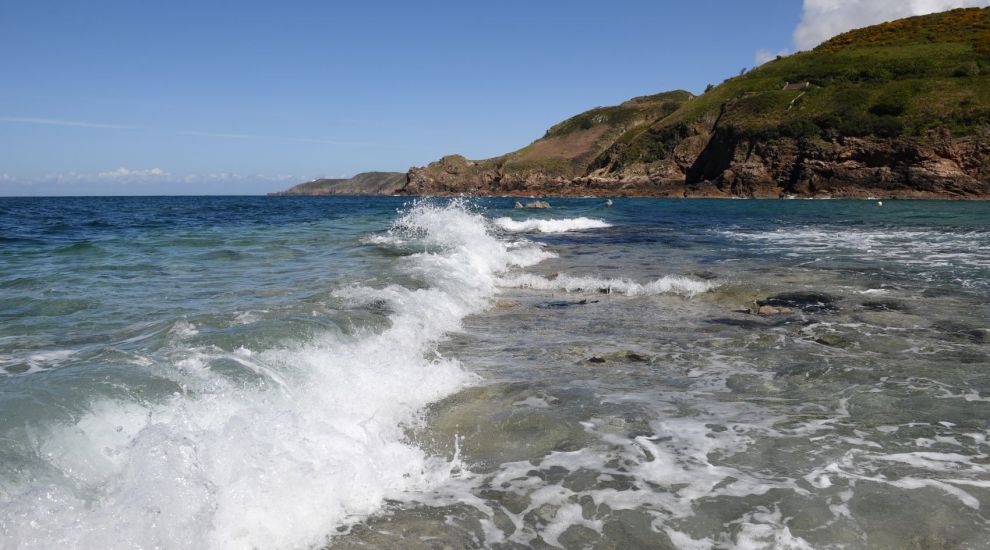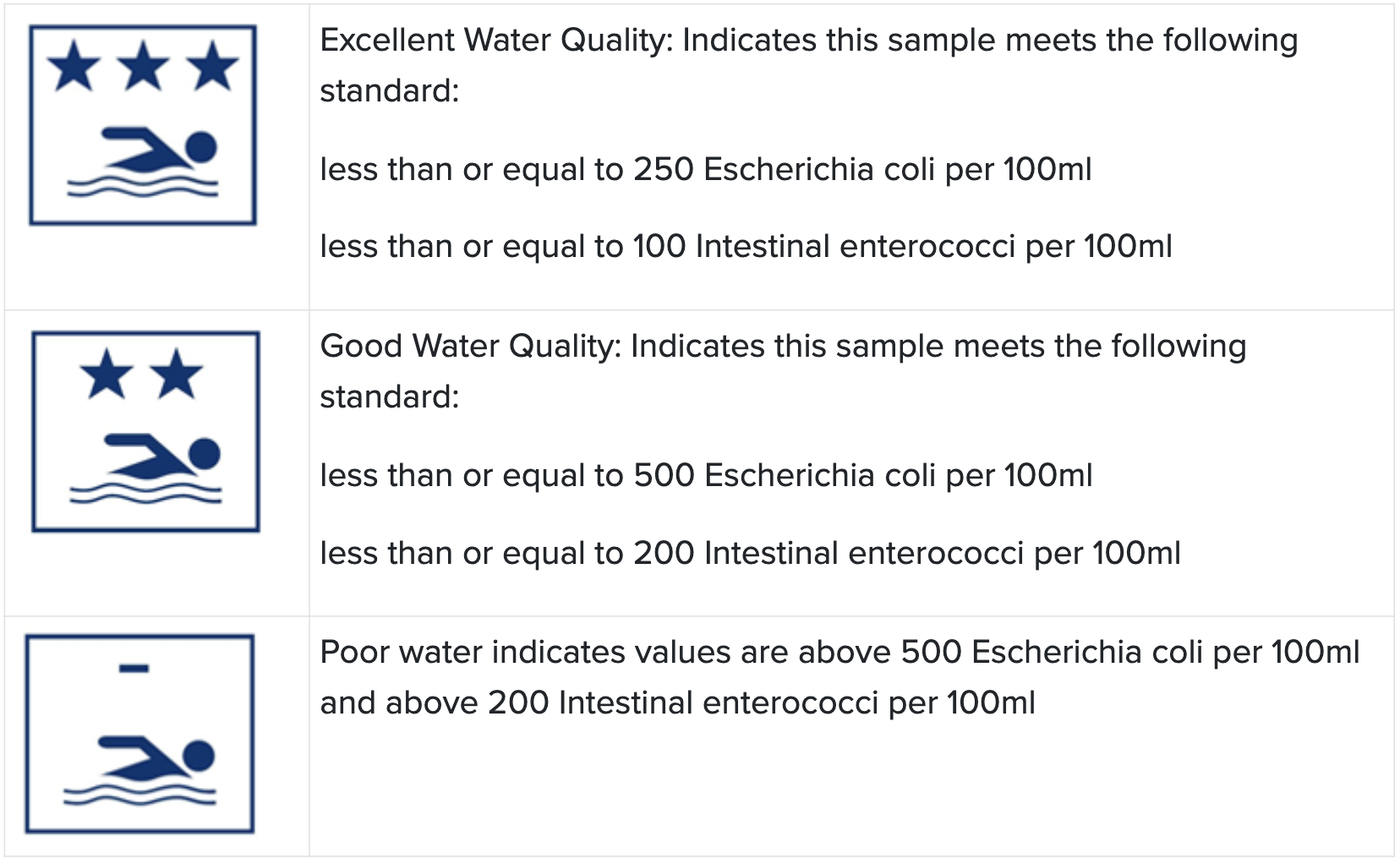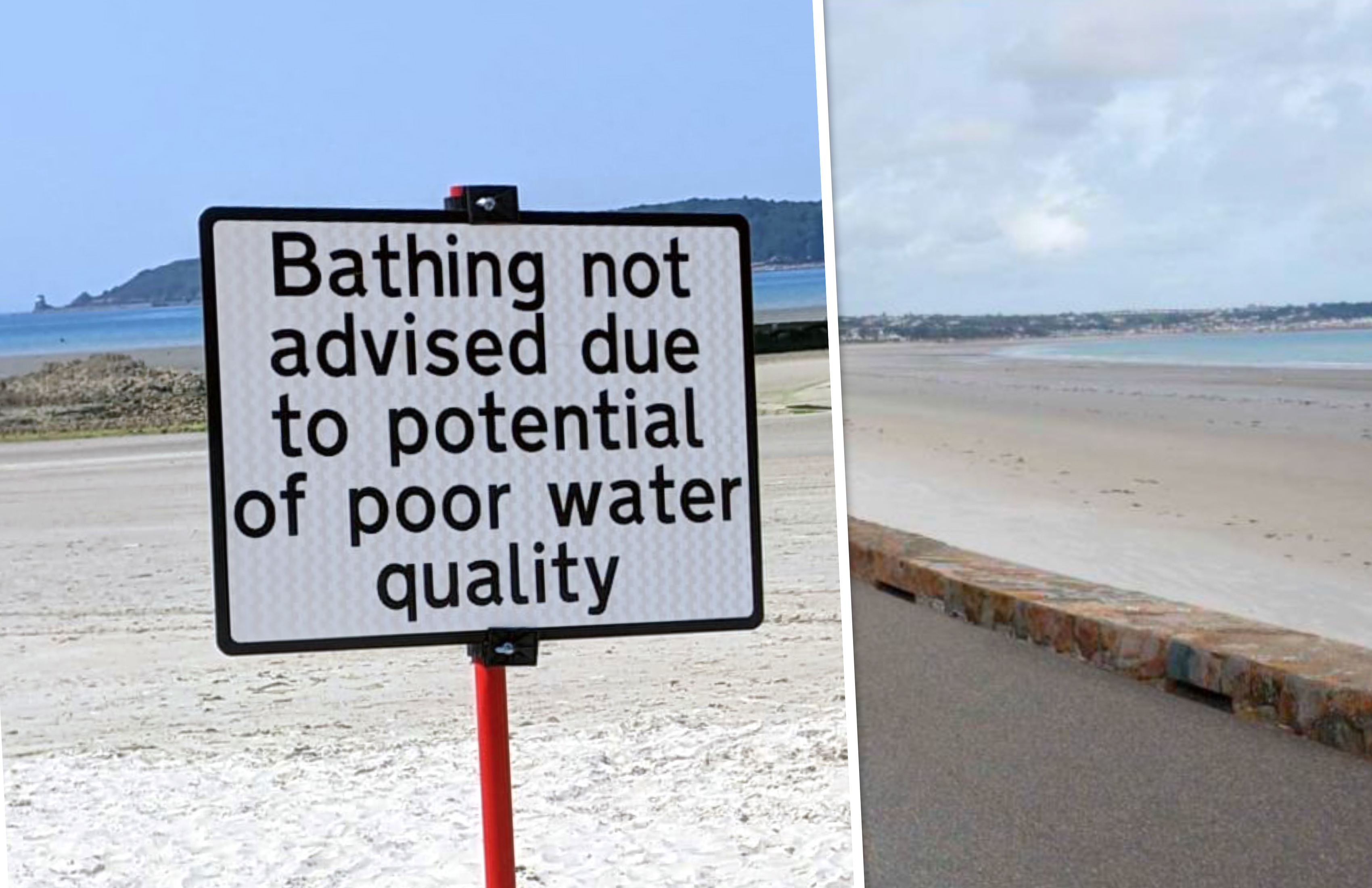


Islanders are being advised against swimming at Grève de Lecq after levels of E.coli over six times higher than the minimum threshold for "poor" water quality were discovered during a routine test.
A sample taken near the bay recorded an E.coli count of 3300 cfu/100ml.
This is over six times higher than the E. coli threshold for "poor" water – which is indicated by a value of 500 cfu/100ml.

Pictured: Poor water is indicated by a value of 500 E. coli (Escherichia coli) per 100ml, and there is currently 3300 E. coli per 100ml at Grève de Lecq.
In a statement, the Government noted that the E. coli levels at Grève de Lecq are “considerably higher” than the European threshold, and confirmed that a pollution control team is investigating the cause.
Signs are also being placed to advise islanders against swimming there.
The Government has said that anyone who has been swimming at Grève de Lecq and starts to feel unwell or has health concerns should speak to their doctor.
The sample was tested as part of regular monitoring of 16 bays around Jersey carried out by the Government between May and September each year.
Last year, some members of a sea-swimming group suggested the testing should take place all-year-round.
This is not the first time that concerns have been raised about the water quality levels in the island.
Video: Outflow in St Aubin's Bay in June in June 2023.
An investigation into whether the Water Pollution Law was breached when a problem at the Bellozanne plant led under-treated sewage to flow into St Aubin’s Bay last June has still not been concluded.
Concerns about the quality of water in the Bay saw ‘no swimming’ advice issued on Wednesday 14 June 2023.
Testing of undiluted samples taken from around First Tower – the location of the Sewage Treatment Works outflow pipe – was revealed to be “poor” by EU Standards.
However, the advice was lifted on Saturday 17 June, with the Government stating that a bathing water sample taken from the area on Friday 16 June was "excellent".

Pictured: Concerns about the quality of water in St Aubin's Bay saw ‘no swimming’ advice issued on Wednesday 14 June 2023.
At the time, Government officials said that the problem at the plant was caused by the warm weather and lack of rain, as well as insufficient "organic matter" flowing through the plant for the bacteria used in its chemical processes to function properly. This meant that the sewage was treated to a lower standard than usual.
Although the facility has been running as normal since the incident, a Regulation team has been formally investigating what happened under the Water Pollution (Jersey) Law 2000. Water pollution incidents can carry an unlimited fine.
The ongoing investigation involves assessing the condition of the Sewage Treatment Works from both before and during the incident in June as well as the the definition of pollution in the Water Pollution Law. Officials previously said it would therefore be some time before it is complete.
Express has asked the Government for an update on where the investigation is up to.
St Aubin’s sewage investigation still ongoing
Water pollution investigation opened after St Aubin’s sewage concerns
WATCH: Water quality "excellent"... but you still shouldn't swim in St Aubin's Bay
Comments
Comments on this story express the views of the commentator only, not Bailiwick Publishing. We are unable to guarantee the accuracy of any of those comments.